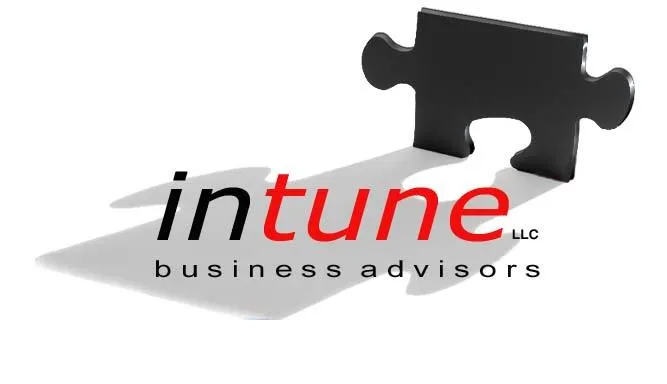

Looks like you've hit a dead end...
Let's get you back on track!
Copyright 2025
All Rights Reserved
Services

Business Valuations
Buying a business? We’ll help you price it. Know what your manufacturing business is worth today. We deliver clear, market-aligned valuations so you can make informed decisions—whether you're planning for growth or preparing for exit.

Growth, Acquisition, & Exit Planning
Unlock the financial potential of your business. We help you identify key value drivers and implement strategies to increase profitability, scalability, and buyer appeal—maximizing the future value of your manufacturing company.

Buyer Screening & Qualification
Engage serious, strategic buyers—confidentially and efficiently. Our proven process ensures you attract qualified buyers with the means and motivation to close, helping you secure the best deal when you're ready to sell.
Get InTune With Your Business – Book Your FREE Discovery Call Today!
We deliver insight others can’t.
We’re not just number crunchers and deal makers. We dive deep into your business knowledge to help you see different perspectives on the business sales climate, how you stack up against your peers, the right improvements you need to make to increase business value, and other topics.

Our experience and expertise are second to none.
For over 20 years, InTune has advised clients in both buy-side and sell-side transactions. But we’re more than just CPAs and Valuation Analysts. We’ve done our fair share of process improvement work for clients, and we apply that expertise to identify and improve your business value drivers. This is expertise that other M&A advisors don’t have.
Meet the Owner
Jim Loeffler
CPA, CFE, MBA
Jim has more than thirty years of experience in accounting and finance, which includes leadership roles with EY, The Campbell Soup Company and MBNA America (Bank of America). Now in his fourth decade as a CPA, Jim founded InTune Business Advisors LLC in 2004, a boutique firm that focuses on growth and exit planning for manufacturing business owners and forensic accounting for litigation attorneys and their clients. An entrepreneur himself, Jim understands that manufacturing owners know their businesses better than he ever will. This is why he’s so excited to bring his expertise and experience to bear when they decide to make one of the most important financial decisions in their life: Buying or selling their business. Jim addresses complex corporate finance issues, performs due diligence and business valuations, and advises clients on both buy-side and sell-side transactions. His financial and data modeling expertise extends beyond valuations and projections to include complex statistical analyses. Additionally, as a process improvement expert, Jim brings a unique perspective that clients leverage to drive business value. Jim routinely brings his forensic accounting expertise to bear in matters involving shareholder disputes, economic damages (e.g., lost profits), business interruption employment claims, incentive compensation disputes, fraud examinations, business valuations, and other situations that demand rigorous analysis and the ability to make the complex understandable in a court of law. He has worked with the FBI, served as a Receivership Accountant, and has testified as an expert witness. Jim routinely addresses the business community on such topics. A graduate of John Carroll University with a double major in Accounting and Finance and The University of Pittsburgh’s Joseph M. Katz Graduate School of Business, Jim is an active member of the American Institute of Certified Public Accountants and the Association of Certified Fraud Examiners. An avid musician, Jim can be found playing his bass or crunching guitar chords when he’s not crunching numbers. Jim can be reached at 412-400-7548 or [email protected].
The 3-Week Financial Clarity Guarantee
Gain industry-specific financial clarity—or the insight is yours, free. We guarantee that within just three weeks of starting our Exit Planning process, you'll walk away with a deeper, data-backed understanding of your manufacturing business’s performance—no strings attached. What You Get: The first deliverable you’ll receive is our Financial Benchmark Assessment—a powerful analysis comparing five years of your company’s financial performance against industry peers. See exactly where you outperform the competition. Identify areas with the greatest potential for value growth Uncover strategic insights to guide your next steps. Whether or not you continue with us through the sale of your business, the report is yours to keep—a valuable tool you can use to make better financial decisions right now.
https://storage.googleapis.com/msgsndr/8Ntg6jplbMWTDmgOTqON/media/67ac393deeb73780f36e9144.jpeg
https://storage.googleapis.com/msgsndr/8Ntg6jplbMWTDmgOTqON/media/67ac3965eeb7374bef6e916c.jpeg




